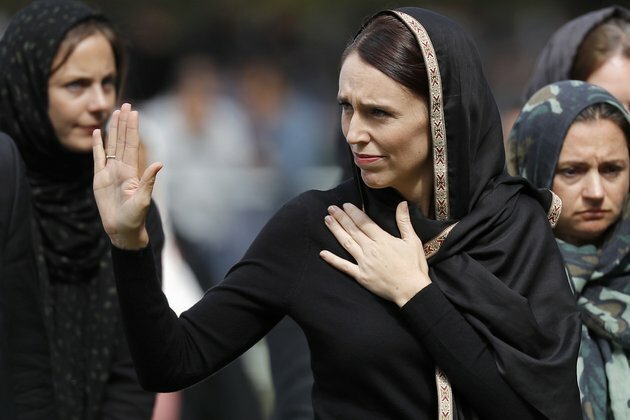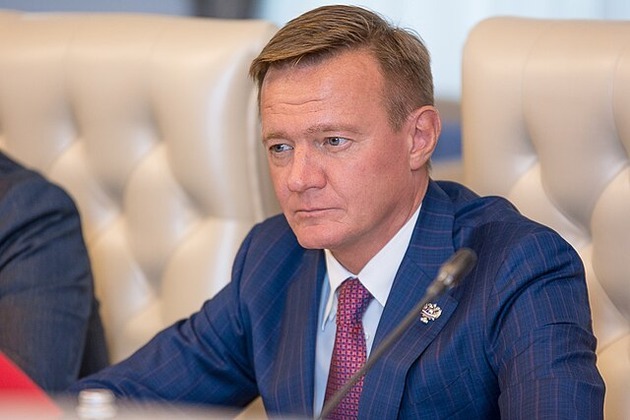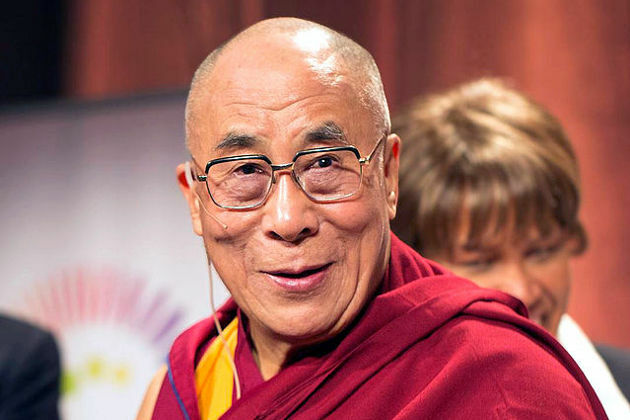Is there a 'feminine' response to terrorism
The Conversation
14 May 2019, 11:58 GMT+10

After a terrorist shot and killed 50 people in two mosques in Christchurch, New Zealand, in March, Prime Minister Jacinda Ardern responded differently than most leaders have after similar attacks.
Usually, history shows, presidents and prime ministers try to appear rational after terrorism. They reassure people that the situation is under control, thank police and other first responders and offer updates on the investigations. Other world leaders, most of them male, have reacted by launching mass surveillance of the public, repressing civil liberties, strengthening law enforcement or calling for a war on terror.
Ardern demonstrated a more compassionate and empathetic handling of the Christchurch shootings.
She wore a headscarf when comforting Muslim victims and mourners. She cried. Her government offered to pay all funeral costs for the victims, regardless of immigration status. And Ardern responded forcefully on the legislative front, pushing new gun control measures through parliament, banning military-style assault weapons in New Zealand.
Arden has been almost universally praised for her leadership through this crisis, which some have identified as a feminine management style. Her approval ratings are the highest since she took office.
We wanted to understand how, exactly, Ardern acted differently than a man when facing down terrorism if in fact she did.
Our study: Categorizing leadership style
To assess Ardens feminine approach to terrorism, we have compared her rhetoric to that of other world leaders in the immediate aftermath of similar mass shootings that is, lone wolf attacks that resulted in two or more deaths and were motivated by right-wing ideology.
Six shooting incidents over the past 50 years meet all these criteria. They are: Norways Utya shooting in 2011; the Wisconsin Sikh temple shooting in 2012; the Charleston, South Carolina, United Methodist Church shooting in 2015; Canadas Quebec mosque attack in 2017; last years Pittsburgh synagogue shooting; and the Christchurch mosque shooting.
Our analysis therefore covered five different leaders reactions to domestic terrorism: Norwegian Prime Minister Jens Stoltenberg, U.S. President Barack Obama, U. S. President Donald Trump, Canadian Prime Minister Justin Trudeau and New Zealand Prime Minister Ardern.
For each leader, we analyzed every sentence of their immediate post-attack statements both spoken and written and noted whether it focused on the perpetrator, the victims, both parties or neither. In total, we coded 314 sentences in this manner.
Men lament victims, too
Arden made headlines after Christchurch for talking about the victims and refusing to say the attackers name, denying him notoriety.
We found that all the male leaders in our sample also expressed empathy with the victims and, to a great extent, focused on the dead and injured rather than the perpetrator. Two actually focused their post-attack comments more strongly on the victims than Ardern, who devoted about 40% of her comment to the Christchurch victims.
Nearly 44% of Prime Minister Stoltenbergs sentences centered on victims, and he did not mention the terrorist at all. Stoltenberg said he was unable to express with words the depth of his feelings about the 77 people killed on Utya island, many of whom were children at summer camp.
Canadian Prime Minister Justin Trudeau who mourned Quebecs slain Muslim worshippers as brothers, uncles, fathers and friends followed, focusing 41% of his statement on the victims.
The two U.S. presidents in our analysis least emphasized the victims.
Obama, who shared his deep sorrow over the senseless murders of black worshippers in South Carolina, spoke about shooting victims in just 18% of his post-attack statements. Trump dedicated less than 5% of his speech after the Pittsburgh synagogue shooting to the dead.
Both Obama and Trump spoke much more about the criminal investigations underway, the law enforcement response and how their government was handling the situation.
This emphasis on power and, by implication, the strength of the nations leader appears to be something of a male response to mass shooting. All the men in our sample dedicated at least half of their post-attack reactions to such topics.
Ardern, a woman, was the only leader in our sample who focused more than half of her comments on the human beings involved in the terrorist attack.
When stereotypes work for women
Arderns response to terrorism differed, too, in how openly she expressed her sadness.
Crying in public can be a political liability for both male and female politicians, according to Dartmouth professor Deborah Jordan Brooks. When President Obama in 2016 struggled to hold back tears after the Sandy Hook school shooting, for example, Fox News mocked him. Research shows that women leaders are penalized particularly harshly for showing emotion.
Ardern, however, has not been judged for crying in Christchurch. Traditional gender roles depict women as emotional. Perhaps, in this time of tragedy, social expectations actually worked in her favor.
Another stereotypically female characteristic empathetic caring for the needs of others was also on display after the Christchurch attack.
Arderns use of the Muslim headscarf when visiting the scene of the crime, for example, was more than cultural sensitivity. It visually conveyed that Muslims are welcome in New Zealand. Muslim leaders worldwide praised the prime minister for her compassionate gesture, and many non-Muslim women in New Zealand soon followed her lead.
Even the Ardern governments policy responses were arguably driven by empathy. Her government offered to pay funeral costs and made tax-free survivor grants available for the partners, children and dependents of the victims.
Research shows that women experience indirect but disproportionate harms when male heads of households die from violence. The survivor grants indicate that Ardern considered womens specific needs in planning government assistance.
Worldwide, research shows, female leaders are most likely to champion these kinds of social welfare policies when in office.
After armed conflicts, female leaders also tend to shift resources from military spending to social welfare, prolonging peace.
Women being women
There are, of course notable exceptions to the idea that female leaders are more compassionate, nurturing or nonviolent leaders.
As U.S. secretary of state, Hillary Clinton advocated for a U.S. military involvement to conflicts in Libya and Syria. British Prime Minister Margaret Thatcher also started war while in office, and famously slashed government funding for Britains social welfare services.
Arderns willingness to embrace an openly female leadership style is a relatively new phenomenon. In the past, many women have felt the need to adopt traditionally masculine traits to succeed in the male-dominated world of politics.
In doing so, Ardern has showed the world that feminine leadership isnt just acceptable it is also, in times of trouble, a powerful force.
 Share
Share
 Tweet
Tweet
 Share
Share
 Flip
Flip
 Email
Email
Watch latest videos
Subscribe and Follow
Get a daily dose of Wisconsin Star news through our daily email, its complimentary and keeps you fully up to date with world and business news as well.
News RELEASES
Publish news of your business, community or sports group, personnel appointments, major event and more by submitting a news release to Wisconsin Star.
More InformationInternational
SectionTravelers can now keep shoes on at TSA checkpoints
WASHINGTON, D.C.: Travelers at U.S. airports will no longer need to remove their shoes during security screenings, Department of Homeland...
Rubio impersonator used AI to reach officials via Signal: cable
WASHINGTON, D.C.: An elaborate impersonation scheme involving artificial intelligence targeted senior U.S. and foreign officials in...
Warsaw responds to migration pressure with new border controls
SLUBICE, Poland: Poland reinstated border controls with Germany and Lithuania on July 7, following Germany's earlier reintroduction...
Deadly July 4 flash floods renew alarm over NWS staffing shortages
WASHINGTON, D.C.: After months of warnings from former federal officials and weather experts, the deadly flash floods that struck the...
Putin fires transport chief, later found dead in suspected suicide
MOSCOW, Russia: Just hours after his sudden dismissal by President Vladimir Putin, Russia's former transport minister, Roman Starovoit,...
Thousands gather in Himalayas as Dalai Lama celebrates 90th birthday
DHARAMSHALA, India: The Dalai Lama turned 90 on July 6, celebrated by thousands of followers in the Himalayan town of Dharamshala,...
US Sports
SectionA's Brent Rooker, Yankees' Jazz Chisholm Jr. round out HR Derby field
(Photo credit: Nathan Ray Seebeck-Imagn Images) Athletics designated hitter Brent Rooker and New York Yankees second baseman Jazz...
Red Sox manager: 3B Alex Bregman (quad) to return this weekend
(Photo credit: Eric Canha-Imagn Images) The Red Sox won't wait until after the All-Star break for Alex Bregman, as manager Alex Cora...
Orioles pull off doubleheader sweep, beating Mets 7-3
(Photo credit: Mitch Stringer-Imagn Images) Jordan Westburg homered and Gunnar Henderson had three hits as the Baltimore Orioles...
Trevor Harris, Roughriders put 4-0 record on line vs. Stampeders
(Photo credit: John E. Sokolowski-Imagn Images) Veteran quarterback Trevor Harris returns to action and the Saskatchewan Roughriders...
Avalanche D Josh Manson signs two-year extension
(Photo credit: Jerome Miron-Imagn Images) The Colorado Avalanche signed defenseman Josh Manson to a two-year contract extension through...
Dodgers take six-game skid into showdown with rival Giants
(Photo credit: Ed Szczepanski-Imagn Images) The Los Angeles Dodgers will attempt to stabilize their dwindling National League West...














